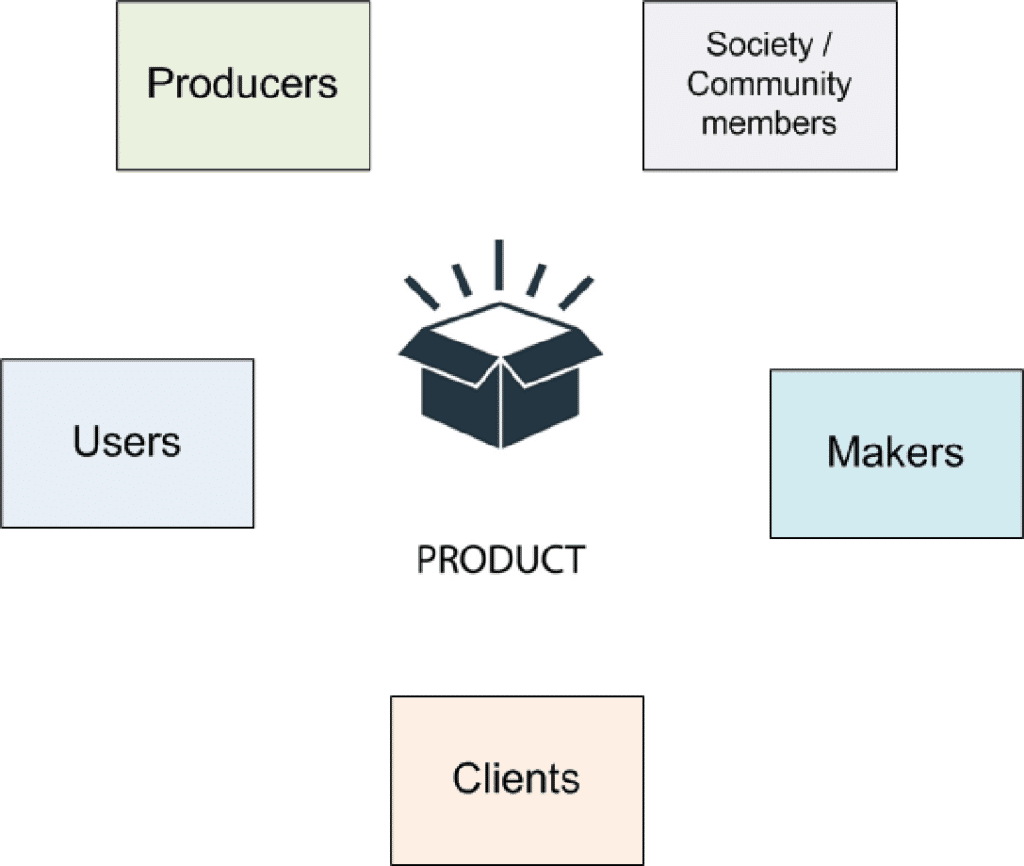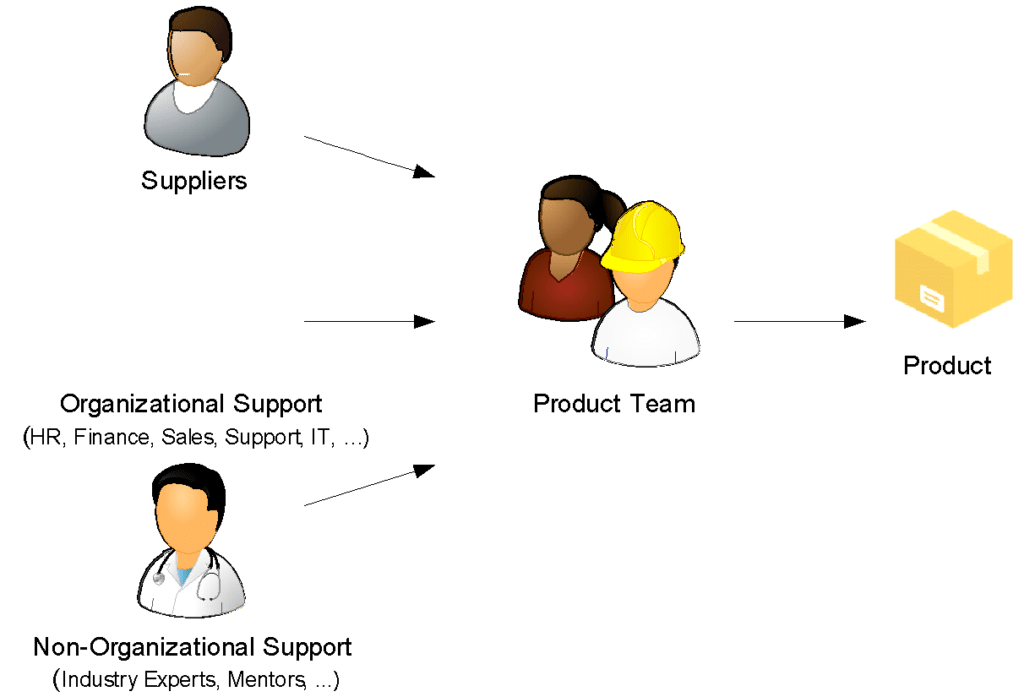Scribe to Entrepreneur
In order to maximize the Value of its work, a Product Team needs to understand how its Product impacts people, positively or negatively. Hence, the very first challenge for Product Owners is to learn who is impacted by their Teams’ Product. This learning can be difficult based on the nature of the Product, its market, the organization, and the political environment. We often refer to those impacted by the Product as “Stakeholders”. This list does not exist and is not included in any contract.
The following model explores the complexity of understanding “Who is impacted by the Product?”.

Stakeholders #1: Producers
Producers are the individuals financing the work of the Product Team. It often is a chain of individuals starting from the investors down to the program director.
Examples of Producers are investors, shareholders, board members, executive members, middle managers, and even directors directly above the Product Team.

Stakeholders #2: Users
Users are the reason products are developed. They interact with the Product in order to solve their problems.
A Product Team does well to consider the chain of users that links their Product to the organization’s customers. Understanding that link will increase alignment and efficiency across the chain and will generate more engagement from everyone in the Team.
For example, take the Data Warehouse Team in a bank. Their work is used by a Platform Team that supports the Investment Team who, finally, provides services to the bank’s clients. As a member of the Data Warehouse Team, understanding how my product impacts everyone in the chain will help me create better products.

Stakeholders #3: Clients
Clients pay to get Products in the hands of users. A chain of clients can also exist. In some industries, you may find wholesalers and retailers in addition to the end client.
Features like pricing, branding, publicity, contract, return policies, and warranty are usually designed with the full chain of clients in mind.

Stakeholders #4: Makers
Makers represent all the individuals that contribute to the Product through its lifecycle, including those who collaborate to create, market, and support the Product. They include the Product Team itself, the people from inside and outside the organization that help build, market and support the Product as well as the Team’s internal and external Suppliers.
To clarify, there might be many makers involved in developing a Product Increment, yet the Product Team remains accountable for its development.

Stakeholders #5 : Society / Community Members
The Product, through its lifetime, can contribute negatively or positively to environmental and social issues impacting the global happiness of the community.
Often, these Stakeholders are difficult to identify. They may include lobbyists, social media influencers, journalists, stakeholders’ families, or simply the general public.
This category represents people impacted by the product without actually touching or using it. Although these are not direct stakeholders they can have an impact on the success of the Product.
As examples, a journalist writing an article about a polluting Product can negatively impact its success while a Product Team sponsoring a community event will potentially have a more positive impact.
Regarding the model
We propose this model because it enables us to explore people’s different needs.
In reality, people may be found in multiple categories. For instance, in a B2C environment, Users and Clients can be the same individuals. For an internal product, Producers and Clients may also be the same individuals. In such a scenario, the individual may have needs from both stakeholder categories.
The discovery of who is impacted by the Product is not a one-time activity. Product Teams adapt their model continuously as they learn about their environment. As they develop a deeper understanding of who is impacted by their Product, the more apt they become to maximize Value.
The second challenge awaits around the corner. Once we understand who is impacted by the Product, the Product Team needs to discover what makes them happy.
Product management training at Pyxis Doceo
Find out more about the product management training courses offered by Pyxis Doceo.